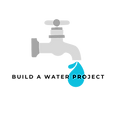The Water Crisis in Lebanon
- Asiya Siddiqui
- Nov 25, 2024
- 2 min read
By: Jonas Wahlstedt
March 18, 2024
People in Lebanon have experienced severe water supply shortages for decades, often receiving limited access to water on a day-to-day basis (WorldBank). At times the population is only able to access water for an hour a day, which stems from the country’s limited natural water supply and aging infrastructure.

Due to these factors, a significant amount of the population relies on bottled water and tanker water, which is expensive and unsustainable in the long term. Groundwater has been exploited at unsustainable levels, and the aquifers located on the coast suffer from a lack of maintenance, age, and seawater intrusion. Due to the unaffordability of water, there are an estimated additional 60,000 illegal wells in the country, which pose sanitation issues and are unreliable. More than 4 million people in Lebanon, young children, and families face serious water shortages or risk being completely cut off from safe water (Unicef, 2021).
Less than 50 percent of the Lebanese population has access to safe water, while below 20 percent has access to proper water sanitation (Globalwaters.org). Large portions of Lebanon’s infrastructure are outdated and unable to provide reliable water delivery. The necessity to strengthen the legal and regulatory systems that oversee water usage, the lax enforcement of regulations, and rising pollution are a few of the major obstacles that are harming the water sector.
Aid from the U.S. government and other donors is helping provide technical and other necessary services to the country’s water sector (Globalwaters.org). Through the Lebanon Water Project, USAID is improving access to clean drinking water, wastewater management, and efficient irrigation in partnership with Lebanon’s public water programs. Additionally, USAID engages with local communities, municipalities across the country, and the private sector to properly address issues in the water sector. Current plans include promoting more efficient governance of water and sanitation, alongside strengthening government institutions overseeing water management to achieve long-term water security. The Lebanon Water Project has multiple other donors, including the country of Italy, the European Investment Bank, and the World Bank. These groups provide capital investments and assistance with technical issues. The U.S. Department of Interior’s USGS, USAID is helping Lebanon identify sites with high potential, to give these programs the best chances of success and bring clean water to people as soon as possible. USAID’s activities are estimated to enable 600,000 people to receive improved water service quality by 2020, but more work has to be done.
Purchase bracelets in Lebanon's colors to support our mission!
References:
.png)



Comments